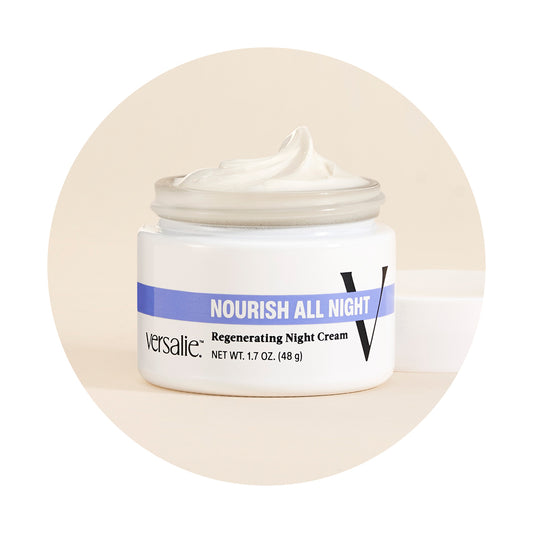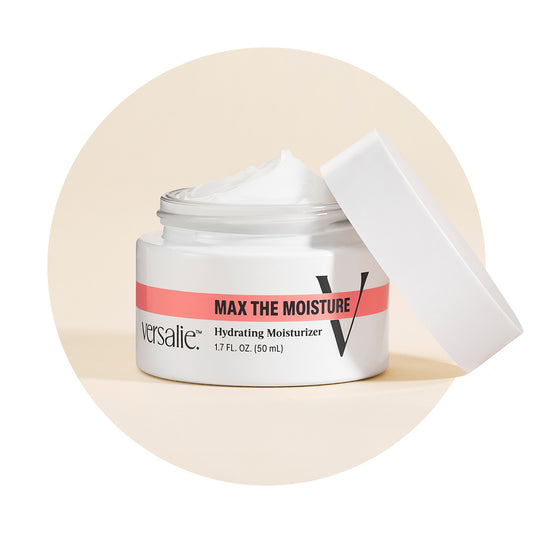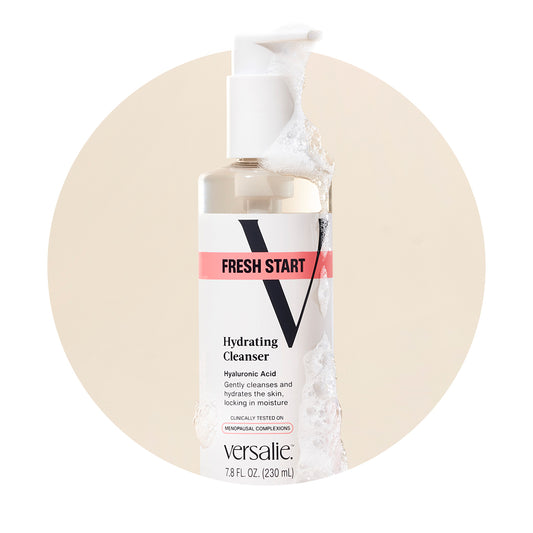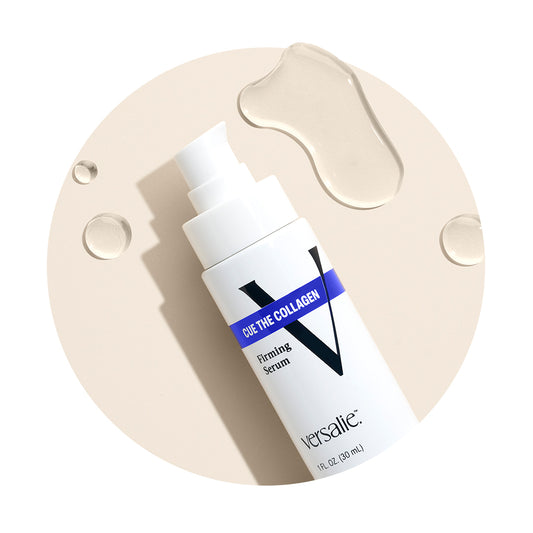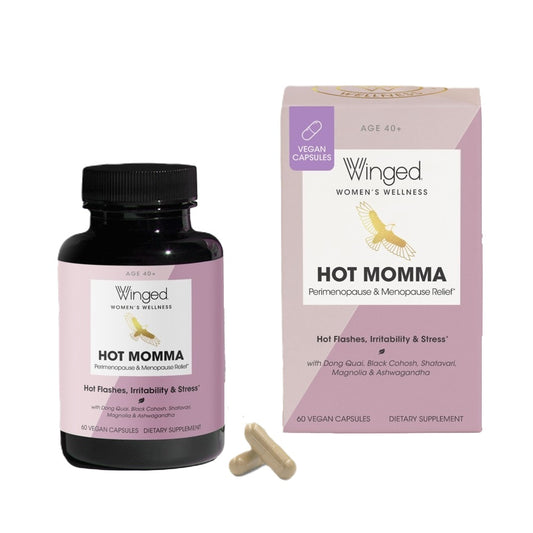A funny thing happened on the morning train commute. A friend announced she was entering menopause. I remember being somewhat surprised to hear “that” word so cavalierly tossed about by someone my age. She, well, “we” were only 45. But as the conversation continued, so did the laughter — in response to tales of sweating in meetings and completely losing our train-of-thought.
That was 7 years ago, and I now find myself telling the same tales. Only they’re not quite as funny. While we’ve come a long way normalizing menopause, we’ve also normalized our symptoms. But symptoms like hot flashes, moodiness, and trouble sleeping aren’t things we should just accept. Especially when they can last 7 to 14 years.
So, no matter which menopause symptoms we’re experiencing and whether they’re mild or more severe, we should do all we can to help minimize the suffering that comes with them. The good news is just a little proactive effort can go a long way when it comes to feeling more like yourself. And of course always talk to a doctor if you have any questions or concerns about your symptoms.
How to reduce hot flashes and turn down the heat
Not only are hot flashes (also known as vasomotor symptoms or VMS) one of the most well-known symptoms of menopause, but they also tend to be one of the most disruptive. In fact, nearly every person going through menopause I know has a story about being in a meeting or on a date when suddenly their body starts to sweat as if someone just cranked up the heat to 105°F — and it takes them off their game. While hot flashes can come at the most inopportune times, there are ways you can better prepare for them. Some lifestyle changes that may be helpful include:
- Dress in layers that can be easily added and removed as the outdoor — and indoor — temperature fluctuates.
- Bring along a portable fan that can cool a sudden burst of heat in a flash.
- Limit alcohol, spicy foods, & caffeine as these items may add to the discomfort. Notice whether they may be a trigger for you.
- Work to reduce stress, as this can be a trigger for some people.
- Aim for a healthy weight as being overweight can increase the frequency and severity of hot flashes.
We also have good evidence for several therapies that can make a difference in the frequency and severity of hot flashes. The best evidence for treatment of hot flashes is from medication:
- Cognitive behavioral therapy can help reduce the degree that hot flashes are felt to be problematic.
- Clinical hypnosis has been shown to decrease the frequency and severity of hot flashes.
- Talk to your doctor about MHT (menopause hormone therapy) or nonhormonal medication, which can help you manage your hot flashes.
- MHT includes estrogen with progesterone for people with a uterus and without progesterone for those who no longer have a uterus.
- Nonhormonal medication can include antidepressants, oxybutynin, gabapentin, and fezolinetant.

Am I moody or is it menopause?
It’s probably a bit of both, as hormone fluctuations during menopause have a way of making us feel like we lack control. Add some perimenopause fatigue and stress to the mix, and irritability can go into overdrive. Help yourself out by getting ahead of it:
- Do mindful relaxation such as deep-breathing and massage to help reduce stress.
- Choose a nutrient-rich, balanced diet. A balanced diet helps our overall health at any stage of life. Especially important for mood care are foods with adequate amounts of protein and omega-3 fatty acids.
- Get regular exercise as it can help relieve stress and improve mood.
Am I losing my mind?
The short answer is no. But that doesn’t mean that newfound forgetfulness is all in your head. When we reach menopause, we tend to notice that we’re suddenly losing our keys more often, along with our thoughts. The term commonly used for this phenomenon is “brain fog” and it’s likely not only a result of hormonal changes, but symptoms that accompany those changes as well — such as poor sleep quality and increased stress. Luckily there are some things we can do to help our brain stay sharp:
- Stay connected through activities. Find meaningful and productive activities to regularly engage in. Visit with family and friends, take an exercise class, join a club focused on a hobby you enjoy — the possibilities are endless!
- Be more present in the moment by engaging in mindful meditation and practicing different mindfulness techniques.
- Improve sleep habits by establishing a regular schedule and minimizing use of electronic devices before bed, especially your phone.
- Keep your mind active with activities that keep you mentally engaged — board games, cards, sudoku, crossword puzzles, etc. It can also help to change up the activities for variety and to continue to challenge yourself.
Will I ever get a good night’s sleep?

The hours we spend asleep are probably the most important hours in our day. How well (or not well) we sleep can affect our mood, our mind, and even our health. Of course, when your body temperature is fluctuating all night, waking up feeling rested only gets more challenging. But by following a few tips, we won’t have to feel defeated:
- Cognitive behavioral therapy has been shown to help with insomnia.
- Be consistent with your bedtime and wake time, even on the weekend.
- Wind down before bed by reading a book, listening to relaxing music, or taking a warm bath.
- Enjoy a cup of herbal tea such as chamomile, which is caffeine-free and an activity maybe people find relaxing.
- Upgrade your bedding to cooler fabrics made from natural fibers.
- Keep the bedroom cool. Cooler temperatures make it easier to sleep, even if you aren’t having night sweats. You may also want to have a fan going in the bedroom.
Help, where did my sex drive go?
Not only can lower hormone levels in menopause reduce our libido, they can also make vaginal tissue thinner and drier, making sex uncomfortable and even painful. On top of this, the fatigue and emotions we’re often experiencing aren’t exactly helpful when it comes to “getting in the mood”. But here are some tips that can be helpful:
- Get physical outside the bedroom to boost energy levels, body image, and your mood.
- For some people, exercising the pelvic floor can strengthen muscles used in orgasm and improve sexual function.
- Avoid skin-irritating products, such as strong soaps and bubble bath, that can lead to vaginal itching and discomfort.
- Quit smoking to help maintain blood flow to the vagina and allow for easier arousal.
- Take your time during sex to allow moisture to build, helping to make sex more comfortable.
- Consider using vaginal moisturizers regularly or use lubricants during sex to help combat vaginal dryness.
- Consider asking your doctor about vaginal estrogen, which is the most effective treatment for vaginal dryness.
At the end of the day, menopause may bring about a lot of changes, but we have the power to help keep them from getting in the way of living our best life.


